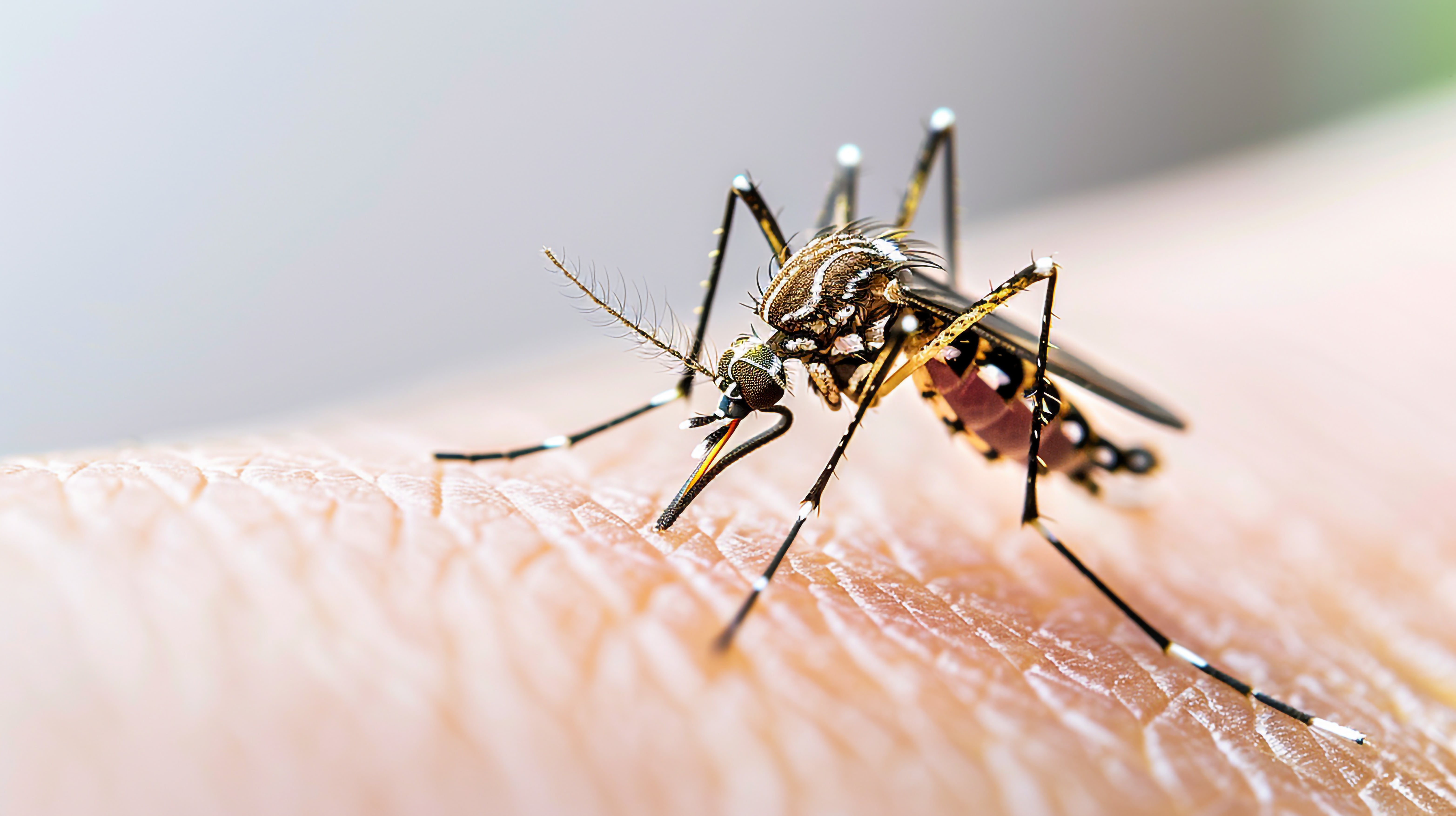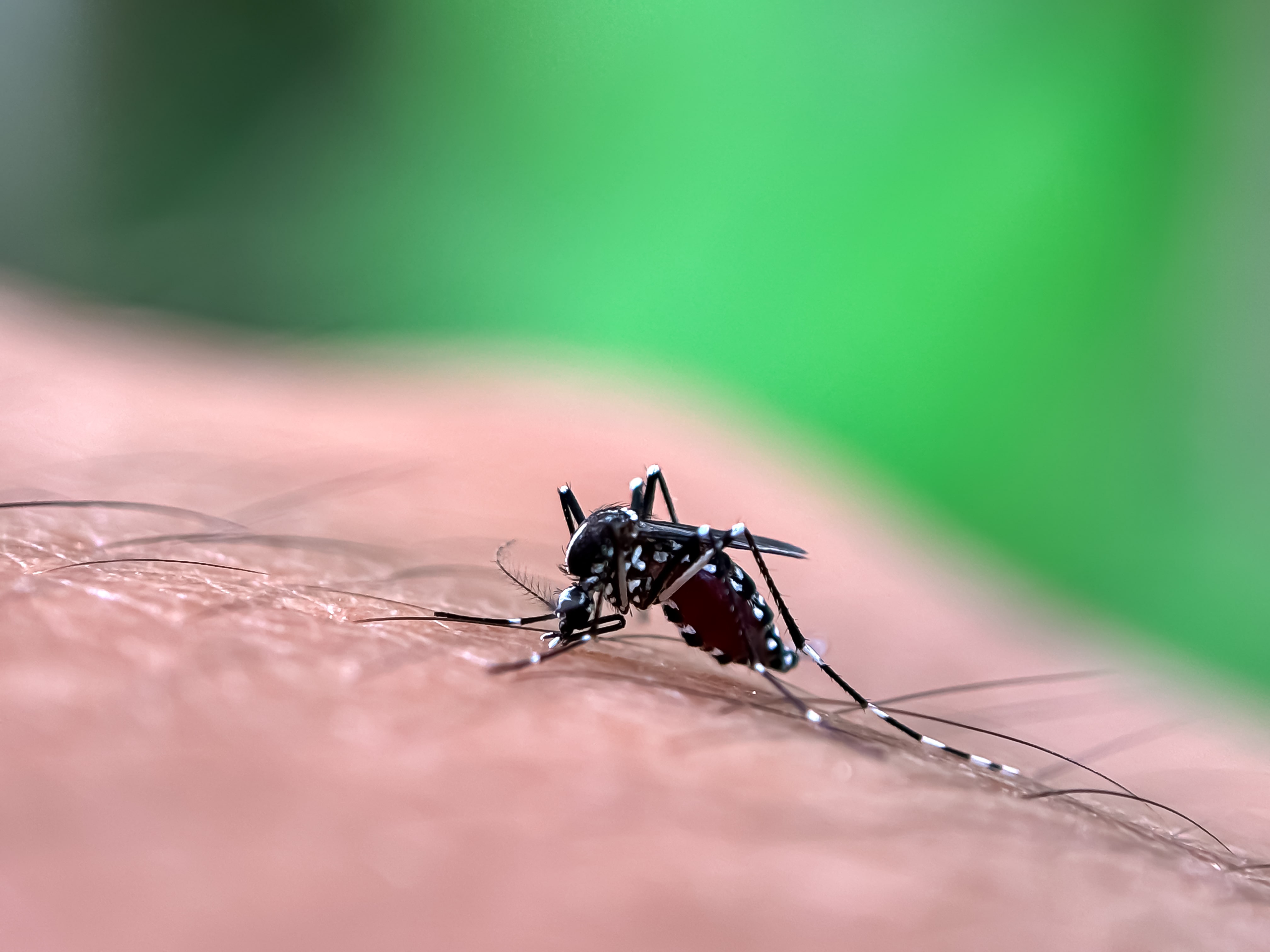Florida's warm, humid climate creates the perfect breeding ground for mosquitoes. With over 80 mosquito species, including some of the most notorious disease vectors, residents must remain vigilant in protecting their homes and health. This article explores the common mosquito species in Florida, the risks they pose, and the best mosquito control solutions to keep your family safe.
Common Mosquito Species in Florida
1. Aedes Aegypti (Yellow Fever Mosquito)

Aedes aegypti thrives in urban environments where standing water is abundant. It lays eggs in small, water-filled containers like flowerpots, tires, and gutters. Female mosquitoes require blood meals to produce eggs, making them frequent human biters. Their ability to carry multiple diseases makes them one of the most dangerous mosquito species in Florida.
Identification: Small, dark-colored with white markings on legs.
Threat: Transmits dengue fever, yellow fever, Zika virus, and chikungunya.
Activity: Primarily bites during the day.
2. Aedes Albopictus (Asian Tiger Mosquito)

The Asian tiger mosquito is known for its adaptability and ability to survive in both urban and rural areas. It prefers breeding in artificial containers and is highly aggressive, often biting multiple hosts in a short period. Its strong flying ability allows it to travel farther than other species, increasing the spread of mosquito-borne diseases.
Identification: Black body with white stripes.
Threat: Spreads dengue, Zika virus, and chikungunya.
Activity: Aggressive daytime biter.
3. Culex Quinquefasciatus (Southern House Mosquito)
This species is most active during warm, humid nights and prefers to lay eggs in polluted or stagnant water sources such as storm drains, ditches, and septic tanks. The female's high reproductive rate makes it a significant contributor to large mosquito populations, increasing the risk of disease transmission in residential areas.
Identification: Brownish with narrow white bands.
Threat: Carrier of West Nile virus and St. Louis encephalitis.
Activity: Nocturnal, prefers feeding at dawn and dusk.
4. Anopheles Mosquitoes
Unlike other mosquito species, Anopheles mosquitoes breed in unpolluted, clear water sources such as lakes, marshes, and slow-moving streams. Their distinct resting posture, with their body tilted at an angle, sets them apart. These mosquitoes have a long history of spreading malaria, making them a serious public health concern in tropical and subtropical regions.
Identification: Slender, long-legged with spotted wings.
Threat: Primary vector for malaria and dog heartworm.
Activity: Feeds at night.
5. Aedes Taeniorhynchus (Black Salt Marsh Mosquito)
This mosquito species is commonly found in salt marshes and coastal areas. Its population surges after heavy rainfall, causing significant discomfort to residents and tourists. While it does not primarily transmit diseases, its aggressive biting behavior can lead to secondary infections and skin irritation.
Identification: Dark body with silver markings.
Threat: Nuisance biter but not a primary disease carrier.
Activity: Swarms in coastal areas, especially after rainfall.
6. Psorophora Ciliata
Sometimes referred to as the "gallinipper" mosquito, this species is known for its large size and painful bite. While not a major disease vector, its aggressive nature makes it a nuisance. It typically breeds in floodwaters and swampy regions, emerging in large numbers after storms or hurricanes.
Identification: One of the largest mosquitoes in Florida.
Threat: Painful bite but does not transmit diseases.
7. Toxorhynchites Rutilus (Elephant Mosquito)
Unlike most mosquitoes, Toxorhynchites rutilus does not feed on blood. Instead, its larvae prey on the larvae of other mosquito species, making it a natural mosquito control agent. Encouraging the presence of this species can help reduce harmful mosquito populations.
Identification: Large, iridescent blue or green.
Benefit: Feeds on other mosquito larvae, making it a beneficial species.
Health Risks of Mosquitoes
Mosquitoes are more than just a nuisance; they are vectors of serious mosquito-borne diseases:
Dengue fever: A viral infection causing severe flu-like symptoms, high fever, rashes, and muscle pain. In severe cases, it can lead to dengue hemorrhagic fever, which is life-threatening.
West Nile virus: A neuroinvasive disease that can cause severe symptoms such as encephalitis or meningitis, leading to paralysis or even death in vulnerable individuals.
Zika virus: Known for causing birth defects, particularly microcephaly in newborns when contracted by pregnant women. Zika can also lead to neurological complications in adults.
Malaria: Though rare in Florida, it is a serious disease caused by a parasite transmitted through Anopheles mosquito bites. Symptoms include chills, fever, and severe anemia.
St. Louis encephalitis: Causes brain inflammation, leading to headaches, confusion, seizures, and, in extreme cases, coma or death.
Dog heartworm: A parasitic disease that affects dogs and sometimes cats, causing severe lung and heart damage if untreated.
By understanding the health risks associated with mosquitoes, Floridians can take preventive measures to minimize exposure and protect their families from these dangerous diseases.
Effective Mosquito Control Strategies
Professional Mosquito Control Services
Hoffer Pest Solutions provides safe, environmentally responsible mosquito treatments. Our mosquito control services include:
Targeted larvicides like BTi to eliminate mosquito larvae.
Barrier sprays to reduce adult populations.
Biological controls such as introducing fish that eat larvae.
Why Choose Hoffer Pest Solutions?
As a family-owned business in South Florida, Hoffer Pest Solutions understands the unique mosquito challenges homeowners face. With over 40 years of experience, we provide effective, eco-friendly solutions to keep your home mosquito-free. Contact us today for a customized mosquito control plan that ensures your family's safety and peace of mind.
By implementing proactive measures and seeking professional assistance, you can effectively manage Florida’s mosquito problem. Whether you need immediate mosquito control or long-term prevention, Hoffer Pest Solutions is here to help.


